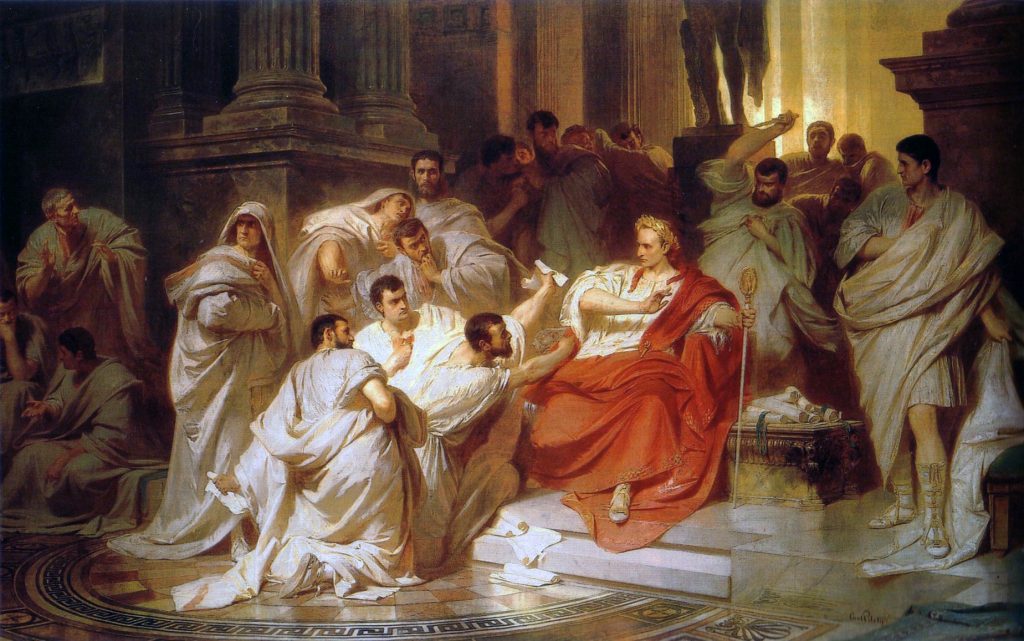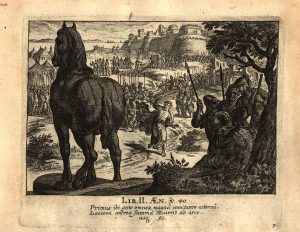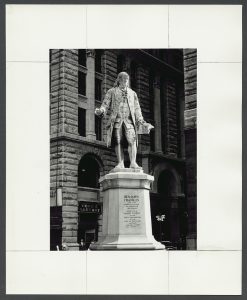Caesar was one of the most powerful and influential men of all time. His great conquests and powerful military presence shaped the modern world, and some of the scars from his wars can still be seen in modern-day Gaul. Caesar’s military legacy and iron-fisted way of getting things done will certainly continue to be marked down in history for as long as humanity understands the value of military and political might. However, with great power often comes great responsibility, and, in this case, great danger. When any man is as popular and influential as Caesar was in his time, he is sure to be hated, and jealousy from his peers should simply be considered an inevitability. 1
Caesar was not exactly the ideal political figure, nor did he initially have a great interest in politics. Instead, he had a mentor, named Apollonius Molon, a Greek philosopher who taught him everything he knew. From Molon, Caesar learned a variety of political skills that led to his success later down the road. One of his greatest successes was as a prominent military general in Rome, which quickly allowed him to gain significant popularity among the people and become a prominent politician. One of these great military feats that gained Caesar’s popularity was his conquest of Gaul. Although this conquest originally appeared impossible to most Romans, Caesar defied all expectations and, using all of his skills, was ultimately able to lead his soldiers to victory, making a name for himself back in Rome. Another success that helped Julius Caesar gain popularity was his order regarding the rebuilding of Carthage, which was held in great regard by the Roman people.2 The new city of Carthage eventually became the second-largest city in Rome’s territory.
Caesar also was known for being a man who had a heart for the poor, and he often tried to do his best to help the poor out by giving individual families land and other valuable gifts. Caesar was gaining so much popularity at such a rapid pace that he began to overwhelm the whole of Rome with his personality and make the Senate like him even less. Around this time, the rich in Rome started to gain even more wealth off of the backs of the poor. As life for the average Roman citizen steadily worsened, more and more struggles began to arise for this class of Romans.3 Caesar was elected to serve for one year as consul in the Republic in 59 BC. Caesar then got himself appointed as governor of Gaul, which he proceeded to conquer over the next several years.

One of the biggest events that garnered Caesar a great wealth of popularity from the Roman people (and hate from the Senate) was when he defied the Senate’s order to return to Rome but to leave his army in Gaul.4 Caesar committed treason by illegally taking his army across the Rubicon River in 49 BCE. The ensuing civil war was relatively short-lived, however, as Caesar quickly defeated Pompey’s army, which was his main opposition. Caesar had successfully staged a coup. His unchecked power led to worry and jealousy from many members of the Senate, including his close associates.5
After winning the civil war, Caesar spent a few years in Egypt and Asia before returning to Rome. When Caesar finally returned to Rome, he focused most of his efforts on his political career and the way that the people of Rome viewed him and his actions. Though he sometimes appeared to respect Republican ideals, there was not a single person in Rome who could have mistaken Caesar for a friend of the Republic. This was a problem because other members of the Senate of Rome became jealous of the immense power Caesar held in Rome. But he appointed two of his most loyal generals—Gaius Trebonius and Gaius Fabius—to serve in his place as consul when he became dictator. This obvious usurpation of power was not without consequence, as issues between Caesar and other members of the Senate increased following the fact that he did not even bother to allow people to vote.6 However, all of these events were leading up to a grand singularity which would finally push the potential assassins of Julius Caesar over the edge. This event was most likely the single thing that brought the assassination of Julius Caesar into the realm of possibility. The main act took place in late January or early February of 44 B.C., when the Senate officially named Caesar “Dictator in Perpetuo“—that is, “Dictator in Perpetuity.”7 Which means that though Caesar was already dictator he claimed this title for life. The main issue that many of the members of the Senate had with Caesar was that he was basically a king with a different title.

The bloody assassination of Julius Caesar was started by men who were very close to Caesar. These men agreed that, in killing Caesar, they were not committing treason, but saving the Roman Republic. Regardless of the reasoning, the conspirators were convinced that Caesar had to die. A few of the conspirators even floated the idea of killing Labienus and Mark Antony, two of Caesar’s most loyal followers. Brutus ultimately decided that this was not a good idea, and argued that if they killed anyone else it would be harder for them to gain the hearts and minds of the public—to convince them that their actions were made out of necessity rather than treason. Multiple documents that were written around the time period claim that an estimate of sixty men were involved in the plot.8These conspirators had a small time frame to come up with a plan to attack Caesar, as they needed to attack him before he left Rome with his army on March 18th, 44 BC. One major issue that they faced was getting Caesar away from any form of protection. Although Caesar technically didn’t have bodyguards, he had loyal supporters and friends who would undoubtedly defend him. Caesar had received warnings that these men were conspiring against him and planning to assassinate him prior to the Senate meeting, but he did not take these risks seriously. He failed to recognize the significance of the claims because he was a soldier and took pride in his courage. It was on March 15th that all of the group’s conspiring would pay off, as there was Senate meeting, and the conspirators saw their chance to take action. Caesar originally decided to stay home, sending Antony to the meeting in his place, but Decimus Brutus was able to convince Caesar to go to the meeting. When Caesar arrived, the conspirators began to cause commotion in an attempt to distract Caesar and get close to him. However, when it came time to attack, the conspirators realized that they had forgotten to determine who would stab Caesar first. Though it is unknown which conspirator stabbed Caesar first one of these men grabbed the clothing Caesar was wearing to get his attention then stabbed him, and all the other conspirators followed. So it was, on that morning on March 15th, 44 BC, the conspirators killed Caesar, stabbing him twenty-three times.9

The conspirators believed that, after Caesar’s death, the people of Rome would rally behind them as liberators, but this was not so. The senators who were not involved in the assassination fled and hid because they were not sure if they were next, and the residents of Rome were not sure what was to come. What followed was the establishment of the Second Triumvirate, and the new triumvirs had all of Caesar’s assassins killed.10
- Zvi Yavetz, Julius Caesar and His Public Image (London: Cornell University Press, 1983), 62-68. ↵
- John H. Collins, “Caesar as a Political Propagandist,” Aufstieg und Niedergang der römischen Welt 1.1(1972): 922–966. ↵
- Holmes, T. Rice, The Roman Republic and the Founder of the Empire (Oxford: Clarendon Press, 1923), 20-23. ↵
- Andrew M. Riggsby, Caesar in Gaul and Rome: War in Words (Austin: University of Texas Press, 2006), 87. ↵
- Valerius Haprocration, Civil War, with the Anonymous Alexandrian, African, and Spanish Wars (Oxford: World’s Classics, 2006),112-114. ↵
- The Oxford Encyclopedia of Ancient Greece and Rome, 2010, s.v. “Rome,” by Michael Gagarin. ↵
- Barry S. Strauss, The Death of Caesar: the Story of History’s Most Famous Assassination (New York: Simon & Schuster Paperbacks, 2016), 50. ↵
- Barry S. Strauss, The Death of Caesar: the Story of History’s Most Famous Assassination (New York: Simon & Schuster Paperbacks, 2016), 58. ↵
- The Oxford Encyclopedia of Ancient Greece and Rome, 2010, s.v. “Rome,” by Michael Gagarin. ↵
- Barry S. Strauss, The Death of Caesar: the Story of History’s Most Famous Assassination (New York: Simon & Schuster Paperbacks, 2016),23-27. ↵



20 comments
Seth Roen
Great article on one of the most famous men in the Ancient World; sometimes you forget that Caesar was such a popular man amongst the people and not the senate. It is funny that the actions of Brutus and the other senators who thought they were saving the Republic ending up dooming it because they ended up angering the people and come of Caesar’s friends, and truly killing the republic and the birth of the empire.
Christian Anthony
This article was very interesting. I never actually knew the real reason Ceaser was assasinated, knowing why exactly he was killed gives more insight to the state of Rome and its politics. It is very strange to me that not many people know the true details of his murder, or what ceasers views were in rome. It was also very funny that the conspirators didnt really have a solid and clear plan when ceaser was becoming a dictator.
Jonathan Ornelaz
I thought you did a good job telling the story of how Caesar came into political life. You did well explaining how important it was to be liked by the people and how that is what drove Caesar to want to be in power. He had already had issues, before when he had to walk away, but chose to come back knowing he was not like by the senate. I think it was very hard that Caesar had a big head and did not head the warning that something might happen to him, and instead of protecting himself, he chose not to. It appeared to me that Caesar was very full of himself and that he was ready to think he would be in power forever with no one coming to get him. I think you did a good job telling a story of someone who had a lot of flaws and those would end up being his downfalls.
Madelynn Vasquez
This article was refreshing to read as it’s been so long since I read up on Caesar’s assassination. It’s one of the most known assassinations of all time and it is truly one of those stories of people having envy for the one’s who try their best to do good for the people, or so it seems?
Franchesca Baldwin
It’s always great to learn about such infamous historical event in more detail. While he started off as a great leader it seems that the power slowly began to corrupt him in some ways. I wonder whether the co-conspirators were truly threatened by this, or by the admiration he seemed to have gained by so many. Either way, it was a very interesting read
Maya Simon
To stop Caesar from gaining too much power, Brutus and the conspirators kill him on the Ides of March. Mark Antony drives the conspirators out of Rome and fights them in a battle. Brutus and his friend Cassius lose and kill themselves, leaving Antony to rule in Rome. At least 60 senators were party to the conspiracy, led by Marcus Brutus, Gaius Cassius, and Decimus Brutus. This was a Great Article!
Carlos Serna
I really liked this article. I think the idea of who started the complot to kill Caesar is lost, but the description of how and why he was killed is correct. Julius Caesar could have been a great senator, but his ambition and greatness doomed him. It is sad how someone who had fight for its power can lost everything by the jealous of people.
Madeline Emke
When the name Julius Caesar is mentioned, most people bring up the Ides of March, or March 15th, because that is the day when Caesar was stabbed. But, most people do not remember the reasoning behind Caesar’s assassination. In Rome, the Senate was valued above all and was recognized as the government power of the time. Thus, when Caesar began slowly taking more power for himself, regardless of the people’s love of him, the Senate’s fear of loss of power and control began to dictate their every thought. In the end, the only conceivable plan they believed they had was to remove Caesar and hope that the people could forgive them. This article was well-developed and gave a beautiful description of a tumultuous time in the history of Rome that is often overlooked.
Stephen Talik
It really is odd to think that, for as famous as the assassination of Caeser is, (et tu Brutus?) that they had forgotten to, ya know, figure out who would actually kill him ahead of time. It also is interesting to see how badly the conspirators misread the public mood at the time, instead of being hailed as heroes, they were reviled as villains
Kendall Guajardo
I found this article to be really interesting! As I only knew the bare minimum regarding his assassination I learned a lot about his character and moral code. I am conflicted because although he was a great leader, loved by many ,and looked out for the poor, had he continued would his ambitions become more sinister? He clearly neglected any sort of authority but himself so maybe his charisma was just a step to becoming a dictator who may suddenly change his ways to fit their agenda. Whatever the case, this article shed light on his ego getting in the way of accomplishing his takeover. The unclear plan of his conspirators was certainly something to laugh about. I know many people praise his political come up and strategy but the ambitions he had were conflicting in the case of him actually being a great leader, although I really want to learn more about this to have a definitive conclusion.